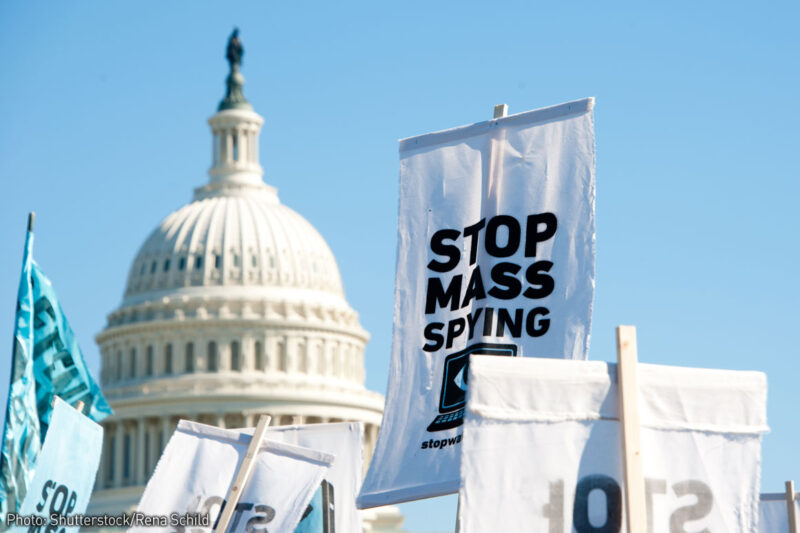
Spring may have finally arrived in D.C., but Senator McConnell isn't being called a flip-flopper for his footwear.
Last month, in the face of a strong developing consensus in favor of significant reform, Sen. Mitch McConnell (R-KY.) joined Sen. Richard Burr (R-N.C.) to introduce a bill that would reauthorize for five years what is one of the most egregious spy provisions on the books today.
Section 215 of the Patriot Act, which is set to expire June 1, is the provision that the NSA has used to collect information on every single call made or received by everyone in America. The most important check on the law is the expiration date built into it, which ensures Congress revisits it regularly. Yet when they filed the bill, Sen. McConnell invoked a rule that would allow him to bypass the regular congressional committee process and bring the bill straight to the floor for a vote.
The move is a clear signal that Sen. McConnell appears ready to reauthorize provisions of the Patriot Act called into question by civil liberties and security experts alike – without even a whisper of debate.
Just last year, however, Sen. McConnell was singing a very different tune of the democratic process. In a partial defense of his strong opposition of the USA Freedom Act of 2014 – which was supported by the intelligence community, civil society, tech companies, and members of his own party – he said:
"It's unclear why the Majority Leader [Reid] wants to rush this untested bill through in a lame duck session rather than after reasonable consideration by relevant committees."
But a rushed decision without reasonable consideration is exactly what his bill would do now.
At a time when wide swaths of the public – including civil libertarians, gun rights advocates, librarians, and even members of his own party – are clamoring to rein in the NSA's authority to conduct mass surveillance, Sen. McConnell's bill is out of touch.
In a coalition letter released today, over 50 groups spanning the political spectrum voiced their opposition to the McConnell bill. Signatories include Gun Owners of America, conservative groups like R Street, civil liberties and civil rights groups like the NAACP and ACLU, and many more.
The letter is clear signal that there is broad consensus that Section 215 has expanded the reach of intelligence agencies in unprecedented and concerning ways and must be curtailed.
Section 215 amended previous laws to allow the government to collect "any tangible thing," including medical records, membership lists for churches or other religious institutions, phone records, and even financial information.
At the same time, it dropped the standards that had to be met before the intelligence community to acquire this information – requiring only that the information be "relevant" to an authorized investigation. Today, we know that the definition of relevance has been twisted beyond recognition, to allow the government to access the call records of every American, on a daily basis.
The result: The government can now peep into the most intimate details of Americans' lives.
For example, phone calls to a shooting range suggest that someone is a gun owner. Similarly, contact with a suicide hotline provides a window into mental health, calls to a priest tell the government about religious affiliation, and regular conversations with an ex late at night give a glimpse into someone's romantic life. This program hasn't made us any safer, and is a chilling indication that the government's surveillance programs have gone way too far.
Rushing through a reauthorization of Section 215, as the McConnell bill proposes, isn't a solution to this overreach. It's turning a blind eye. And, that's something privacy groups, civil libertarians, Republicans, Democrats, and gun owners can all agree on.


